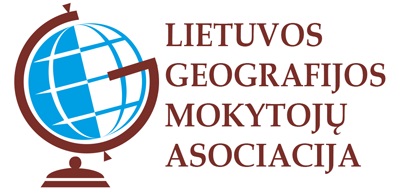Incomplete sentences - how to make the perfect cup of tea (Intermediate)
Klausimas #1
How to make the Perfect Cup of Tea
Many people ask more than that their tea be "wet and warm", but the hunt for perfection in a tea cup, a scientist created a formula for optimal temperature, infusion and imbibation. Oh, and when to the milk in.
There are 11 rules for perfect tea making, rules from nobody should dare depart, said George Orwell.
The great critic of Hitler and Stalin, was not a bit of teatime Totalitarianism himself, it seems. Orwell said tea - one of the "mainstays of civilization" - is ruined by sweetening and that anyone flouting his diktat shunning the sugar bowl not be called "a true tealover".
Aside from sweet-toothed tea drinkers, the author displayed a distaste for scientists. So to mark the 100th anniversary of Orwell's birth, the Royal Society of Chemistry (RSC) has decided to at his 11-point formula - and rubbish a good many his supposedly "golden" rules.
Dr William Barn, a chemical engineer Reading University, has brought the weight of his scientific knowledge (and shameless personal preferences) bear on the question of perfect cuppa, and found Orwell was wrong on a number of points.
Orwell's six-spoons tea per pot - mightily extravagant when the author set down this rule during post-war rationing - is still too strong today. The RSC endorses no more a single spoon of leaves.
As for adding milk to the tea after it is poured, the RSC issues stern scientific warning against the practice. It seems that dribbling a stream of milk hot water makes "denaturation of milk proteins" more likely. And would want that?
"At high temperatures, milk proteins - which are normally curled up foetus-like - begin to unfold and link together clumps. This is what happens in UHT (ultra heat-treated) milk, and is it doesn't taste as good as fresh milk," says Dr Barn.
It is better have the chilled milk massed at the bottom of the cup, awaiting the stream of hot tea. This allows the milk to cool the tea, than the tea ruinously raise the temperature the milk.
Also, unlike Orwell's rules, science seems to bear no grudge against those who would sugar with their tea - provided it's white sugar.
Indeed, the addition of sugar is praised since "acts to moderate the natural astringency of tea" - which translated unscientific terms means that it makes tea, wait for it, bitter.
This is heresy Orwell. "Tea is meant to be bitter, as beer is meant to be bitter," he said. What would he have made of the alcopop suggested the RSC?
He would recognise appreciate some elements of Dr Barn's perfect cuppa. The RSC brew uses Indian Assam tea leaves, which falls Orwell's tight stipulations. He said other nation's tea made him feel "wiser, braver or more optimistic".
There is no real scientific reason Assam winning out over other leaf varieties, it just happens to be strong tea to Dr Barn's own taste.
"While some things are backed science, others - like the choice of Assam - are based on my own preferences. I'm sure there going to be plenty of people coming up with better methods to make tea and it's good we have that debate," says Dr Barn.
Finally, the RSC recommends that the perfect cup of tea made following its formula be drunk while reading George Orwell's account of 1930s drudgery vagrancy Down and Out in Paris and London.
Atsakymų variantai rodomi tik registruotiems sistemos eTest.lt vartotojams. Mokytojo registracija, mokinio registracija
Taškų skaičius už teisingą atsakymą: 47





